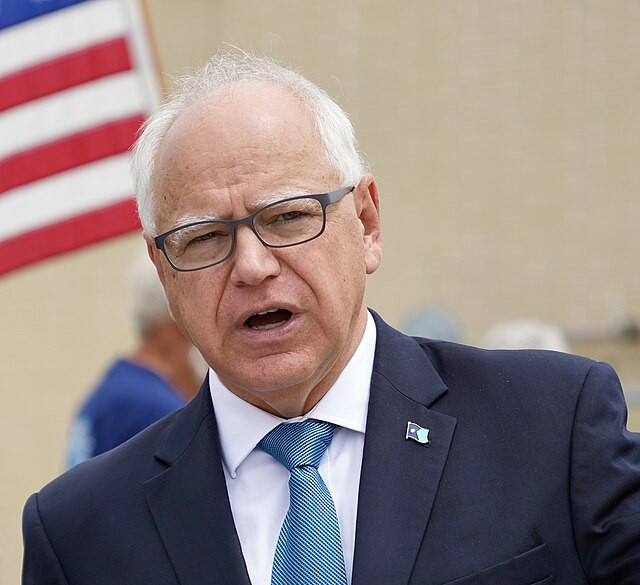Before being named Vice President Kamala Harris' running mate, Minnesota Governor Tim Walz's extensive experience with China has been a hallmark of his career. This relationship, however, has drawn immediate GOP criticism and became a hot topic on Chinese social media.
Walz's ties with China stretch back to his first days out of college, and his relationship with the country has remained a constant throughout his career. This history with Beijing-viewed increasingly by Americans as an "enemy"-could become a contentious point in the presidential campaign, as being tough on China is a rare bipartisan agreement in U.S. politics.
Governor Walz's stance on China aligns broadly with the Biden-Harris administration's policy of "managing competition" while seeking cooperation on global issues such as climate change. Despite being critical of the Chinese Communist Party's trade practices and aggressive actions in the South China Sea, Walz advocates for collaborative opportunities. "I don't fall into the category that China necessarily needs to be an adversarial relationship," Walz said in a 2016 interview.
Walz's connection with China began in 1989, when he traveled to Foshan to teach English and American history through Harvard's WorldTeach program. His arrival coincided with the Tiananmen Square crackdown, which left a lasting impact on him. "It was my belief at that time that diplomacy was going to happen on many levels, certainly people to people, and the opportunity to be in a Chinese high school at that critical time seemed to me to be really important," he later testified in Congress.
After returning to the United States, Walz maintained his connection with China, taking high school students on annual trips through a company he and his wife Gwen founded. They even spent their honeymoon in China, marking their wedding on June 4, 1994-the anniversary of the Tiananmen Square massacre. "He wanted to have a date he'll always remember," Gwen Walz told a local newspaper.
Walz has often praised the Chinese people while criticizing their government. "If they had the proper leadership, there are no limits on what they could accomplish," he told the Nebraska newspaper The Star-Herald in 1990. As a congressman, Walz was vocal on human rights issues in China, co-sponsoring the Hong Kong Human Rights and Democracy Act of 2017 and resolutions on Tiananmen Square.
Despite his critical stance on Beijing, Walz's extensive ties with China have drawn suspicion from Republicans. "Tim Walz owes the American people an explanation about his unusual, 35-year relationship with Communist China," Sen. Tom Cotton (R-Ark.) said on X.
The Harris-Walz campaign dismissed such criticisms, highlighting Walz's record on human rights. "Republicans are twisting basic facts," said campaign spokesperson James Singer. "Walz has long stood up to the Chinese Communist Party, fought for human rights and democracy, and always put American jobs and manufacturing first."
Walz's China experience also drew attention on Chinese social media, where commenters expressed a mix of hope and misgivings. "It's rare to have an American politician openly say that the two countries can coexist without opposition," one comment on Weibo read. Others, however, suggested that greater familiarity with China might lead American politicians to perceive the Chinese government as a threat.
Dean Cheng, a non-resident senior fellow with the Potomac Institute for Policy Studies, noted that U.S. views of China have evolved since Walz's initial visits. "What is more noteworthy are recent comments by Governor Walz that he doesn't see China as necessarily an adversary and hopes for cooperation," Cheng said.
Jeff Moon, a former assistant U.S. trade representative for China, believes Walz's experience could be an asset. "Walz has seen it all, understands the promise and peril of engaging with China, and can provide valuable advice on China issues to President Harris and her foreign policy team," Moon stated.
In China, social media reactions reflected skepticism about Walz's potential influence on U.S.-China relations. "The will of an individual is irrelevant in the face of the will of the nation, whether he is pro-China or anti-China he has to be bound by the national interests of the United States," one Weibo commentator said.






